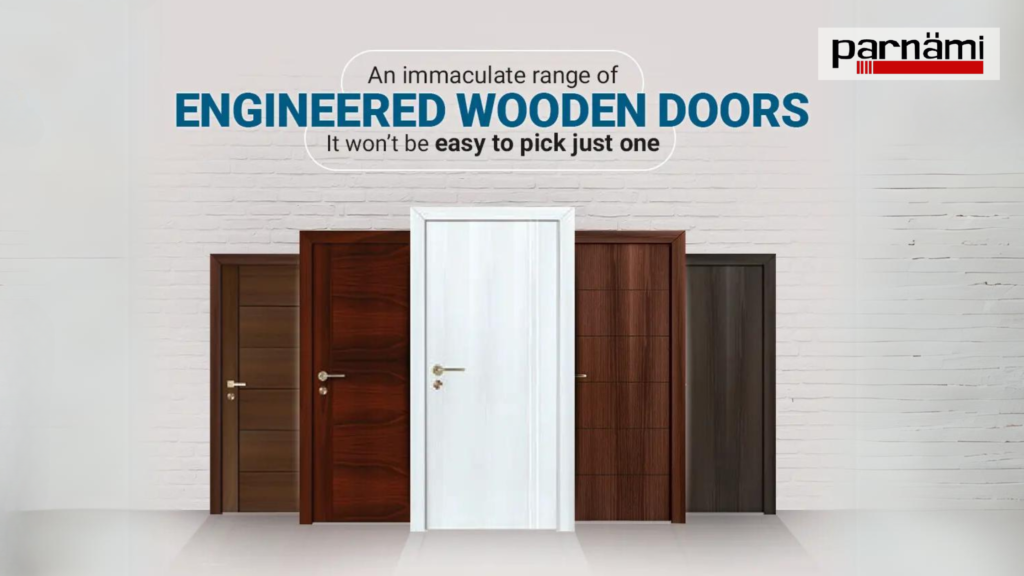Engineered wood, also known as composite wood or man-made wood, is a versatile and increasingly popular material in various construction applications, including doors. It is manufactured by bonding together layers of wood veneers, fibers, or particles with adhesives, creating a composite material with enhanced properties compared to solid wood. Engineered wood offers several advantages and can be an excellent choice for doors, but its suitability depends on specific requirements and preferences.
Advantages of Engineered Wood for Doors:
Stability: Engineered wood is less prone to warping, twisting, or expanding and contracting due to changes in humidity and temperature. This stability makes it an ideal choice for doors, which need to maintain their shape and functionality over time.
Durability: Engineered wood can resist moisture better than solid wood, reducing the risk of rot and decay. This durability is particularly advantageous for exterior doors exposed to varying weather conditions.
Cost-Effective: Engineered wood is often more affordable than solid wood, making it a cost-effective option without sacrificing quality and performance.
Versatility: It can be crafted to mimic the appearance of various wood species, providing a wide range of design options to match different architectural styles and aesthetics.
Eco-Friendly: Engineered wood often uses wood from sustainable sources and utilizes wood scraps and residues, reducing waste and environmental impact.
Considerations when Choosing Engineered Wood for Doors:
Type of Door: Engineered wood is suitable for both interior and exterior doors. The choice depends on the specific application and the level of exposure to environmental factors.
Core Material: Engineered wood doors typically have a core material that varies in composition. Solid core doors are heavier and offer better sound insulation, while hollow core doors are lighter and more cost-effective.
Finishes: Engineered wood doors can be pre-finished with a veneer or can be primed for painting. Consider your desired finish and maintenance requirements.
Maintenance: While engineered wood is more resistant to moisture than solid wood, it still requires proper maintenance, such as regular sealing or painting, to prolong its lifespan.
Budget: Determine your budget and choose an engineered wood door that meets your quality and design expectations within that budget.
Also Read: Advantages of uPVC Windows and Doors: Why uPVCs Stand Out
In summary, an engineered wooden door offers the aesthetic appeal of a conventional wooden door with the added advantages like being cost-effective, environment-friendly, and highly durable. Owing to all these attributes, an engineered wooden door justifies its rising popularity. When considering engineered wood for your doors, take into account factors such as the door’s location, core material, finish, maintenance requirements, and budget to ensure you make an informed choice that suits your specific needs and preferences.

